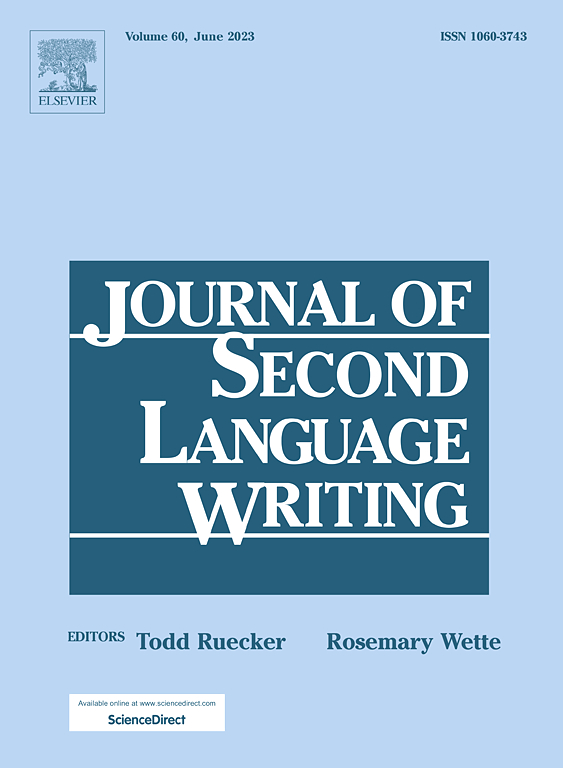翻译作为一种写作工具对英语学术写作的影响:一个定性的语言学分析
IF 4.5
1区 文学
Q1 LINGUISTICS
引用次数: 0
摘要
英语在学术出版中的广泛使用迫使许多研究人员使用英语作为外语(EFL)来撰写他们的工作,以确保全球传播。为了提高他们的写作能力,他们经常依赖在线词典、语法检查器和机器翻译(MT)系统等资源。本文探讨了机器翻译的使用是否能有效地支持外语西班牙语研究者用英语撰写学术论文。为此,我们招募了16名西班牙研究人员,他们分别用英语和西班牙语写了一份摘要。西班牙语摘要是用MT翻译的,然后由研究人员自己进行后期编辑。英语摘要和mt翻译/后期编辑的摘要随后都由专业编辑进行编辑,以确保它们符合出版标准。通过对编辑版本的对比分析发现,机器翻译与自我后期编辑相结合,减少了与语言机制相关的编辑。然而,调整仍然需要完全符合英语学术写作惯例。总的来说,研究结果表明,MT与自我后期编辑相结合,可以成为提高英语西班牙语研究人员制作的学术文本质量的有用工具。本研究对MT作为辅助英语学术写作资源的潜力提供了有价值的见解。本文章由计算机程序翻译,如有差异,请以英文原文为准。
The impact of MT as a writing tool on EFL academic writing: A qualitative linguistic analysis
The widespread use of English in academic publishing compels many researchers to write their work in English as a Foreign Language (EFL) to ensure global dissemination. To improve their written proficiency, they frequently rely on resources such as online dictionaries, grammar checkers, and Machine Translation (MT) systems. This paper explores whether the use of MT can effectively support EFL Spanish researchers in writing academic papers in English. To this aim, we recruited 16 Spanish researchers who wrote an abstract in English and another one in Spanish. The Spanish abstract was translated using MT and then post-edited by the researchers themselves. Both the EFL abstract and the MT-translated/post-edited abstract were subsequently edited by a professional editor to ensure they met publication standards. A comparative analysis of the edited versions revealed that the combination of MT and self-post-editing resulted in fewer edits related to language mechanics. However, adjustments were still needed to fully align with English academic writing conventions. Overall, the findings suggest that MT, when combined with self-post-editing, can be a useful tool in enhancing the quality of academic texts produced by EFL Spanish researchers. This study offers valuable insights into the potential of MT as a resource that can assist EFL academic writing.
求助全文
通过发布文献求助,成功后即可免费获取论文全文。
去求助
来源期刊

Journal of Second Language Writing
LINGUISTICS-
CiteScore
8.80
自引率
13.10%
发文量
50
审稿时长
59 days
期刊介绍:
The Journal of Second Language Writing is devoted to publishing theoretically grounded reports of research and discussions that represent a significant contribution to current understandings of central issues in second and foreign language writing and writing instruction. Some areas of interest are personal characteristics and attitudes of L2 writers, L2 writers'' composing processes, features of L2 writers'' texts, readers'' responses to L2 writing, assessment/evaluation of L2 writing, contexts (cultural, social, political, institutional) for L2 writing, and any other topic clearly relevant to L2 writing theory, research, or instruction.
 求助内容:
求助内容: 应助结果提醒方式:
应助结果提醒方式:


